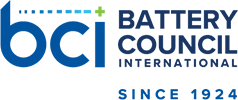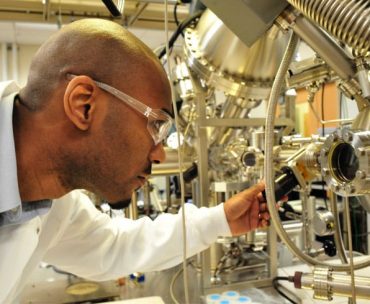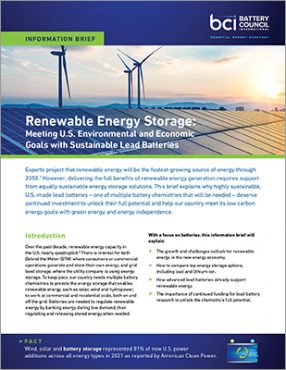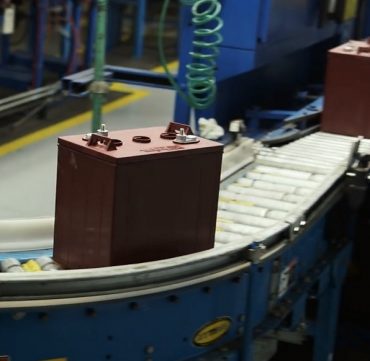
WASHINGTON – March 15 – Yesterday Representative Daniel Meuser (PA-09) introduced the USA Batteries Act, legislation that would eliminate taxes on lead oxide, antimony and sulfuric acid. The bill would repeal the chemical tax implemented as part of the Infrastructure Investment & Jobs Act (IIJA). This tax forces an essential American industry to pay higher costs for key raw materials used to manufacture lead batteries, a tax that is not levied on imported batteries.
“The lead battery industry thanks Representative Meuser for his leadership in introducing legislation to ensure that the U.S. battery manufacturing industry can continue to provide lead batteries for many critical business sectors including defense, transportation, logistics, telecommunications and energy generation.
“Our industry has an annual manufacturing capacity of more than 165 GWh in the U.S. and more than 206 GWh across North America. At a time when demand is outpacing domestic production, the USA Batteries Act will eliminate a tax that gives foreign manufacturers an unfair advantage on the cost of raw materials. The purpose of the infrastructure bill was to support domestic manufacturing. If this tax is allowed to stand it will negatively impact the 25,000 American workers who make and recycle lead batteries and take pride in the fact that their product is the most recycled consumer product in the U.S.,” said Roger Miksad, Battery Council International executive vice president.
Lead batteries will be the dominant rechargeable battery technology for the foreseeable future, are the most recycled consumer product in the nation, and are the global leader in a variety of green applications from well-known automotive uses supporting clean mobility in low-carbon start-stop and micro-hybrid vehicles, to the growing utility and renewable energy storage markets which are ushering in a global energy transition.
The U.S. lead battery industry invested nearly $113 million in R&D in 2021 and through agreements with the U.S. National Laboratories system is actively pursuing next gen battery technology and energy storage to meet the needs of a market that is expected to grow from 360 GWh in 2020 to 430 GWh in 2030. These battery innovations are being developed by U.S. companies and will be built by U.S. workers in communities across the nation.
About Battery Council International
Battery Council International (BCI) will soon celebrate its 100-year anniversary as the leading trade association of the North American battery industry representing more than 125 member companies. Formed in 1924, BCI joins together battery manufacturers and recyclers, marketers and retailers, suppliers of raw materials and equipment, and battery distributors from across North America and around the world. BCI members are committed to responsible manufacturing and recycling processes, and serve as a unified voice for environmental, health and safety stewardship. The organization continues to unite members within the lead industry to successfully communicate and protect through education, science, and government efforts the most successful circular economy on the planet. With 99% of used lead batteries collected and recycled in the U.S. and the typical new lead battery containing 80% or more of recycled content, BCI supports the path toward similar sustainability goals for all other battery chemistries.






